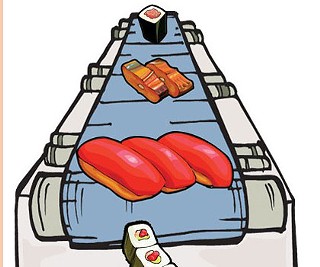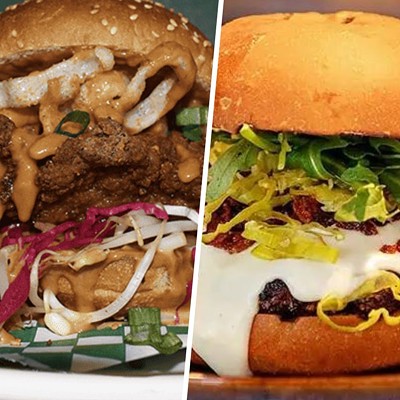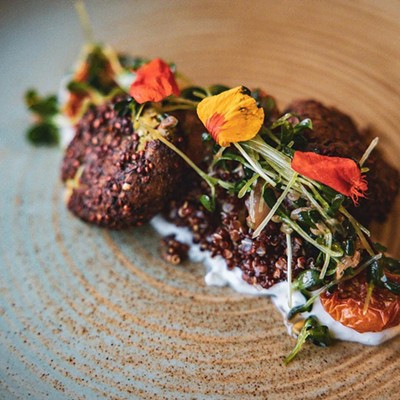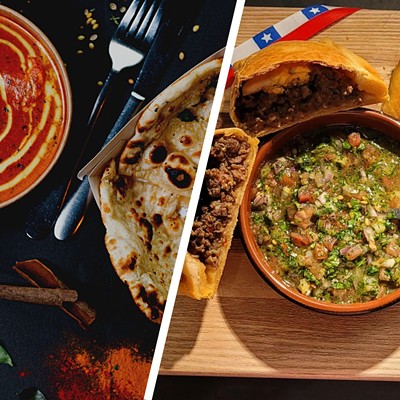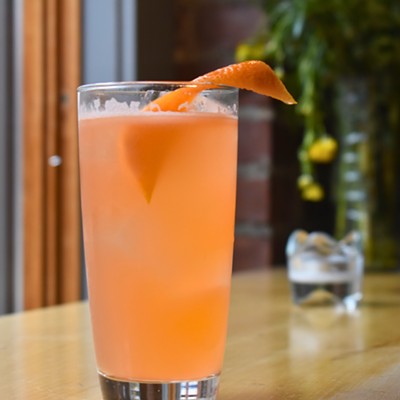Let's face it, your average sushi plate is about as vapid as a fistful of colourful pills wrapped in papery seaweed. Reliably available, uniformly identical, cut up, cubed, it tastes as stolid as any other fast food. Somewhere in our rush to be healthy, fish stopped being fish and became a product.
Tony Soprano loved his sushi. Ghostface Killah was all about the Fishscales. Industry people in Halifax can't stop themselves. They call fish "product" all the time. Every gangster knows there is no easy way to wean consumers off product and, right now, mass-market sushi has us riding a 64-piece sashimi boat to hell.
"Our name is Hamachi, yellowtail tuna. It's on the avoid list," says Leanne Christie, Manager of the Dartmouth Hamachi Grill & Sushi House. She's fully aware of the irony, but her road is paved with good intentions.
This week---the same week Sea Choice and the Ecology Action Centre released their first rating guide to sustainable sushi---the Hamachi chain of restaurants started offering sustainable seafood specials.
It's a tandem promotion. A phone call two months ago from Sea Choice took Christie's job on this new tangent. "It's a unique challenge," she admits, "no one has broken ground on this one. It is tough."
For the last two months, her crew worked daily to source new products for 10 new feature dishes incorporating sustainable seafoods such as Albacore tuna, Atlantic hook and line striped bass and salmon from Loch Duart in Scotland.
Quality and consistent supply are her biggest considerations. None of these 10 items will be on the regular menu, items Christie says, until they are 100 percent reliably sourced. And that is where the product erasure breaks down, because wild fish are not widgets.
"The trick," says the Ecology Action Centre's Susanna Fuller (she worked on the Sea Choice Guide), when it comes to local, sustainable options, is that "really, with the exception of lobster, there's nothing that's fished year round."
The Sea Choice guide rates fish in a red, yellow and green stoplight system that looks simple, but once you stick your toe in the water, sustainable seafood has little moral clarity.
If food miles concern you, positive choices like British Columbian scallops and spot prawns or Mexican shrimp might be problematic. But, Christie says, unagi (freshwater eel) and saba (mackerel) are processed in Hong Kong, shipped to Vancouver, repacked in Toronto and sent here by truck all the time. By comparison, BC products are good.
While there are sustainable models in aquaculture, as much bad farming as good takes place in Canada. Atlantic farmed salmon is one of the most egregious examples of unsustainability, filling up cheap, low-end sushi plates across the continent. Flip side: they keep many Nova Scotian communities afloat.
Another exception: Fuller says local bluefin tuna (yes, the species on the verge of collapse) is OK sometimes. "Rod-and-reel tuna is OK locally," she says, but only because in "NS, PEI and NB we do have a rod-and-reel fishery for tuna and most other places don't have that."
When it comes to making consumer choices, "it's not 100 percent or nothing," Fuller asserts quickly, "but making the effort and having that on the table, having sustainable options on the menu and marking them as such is a good idea. And it doesn't mean you can't have the other fish."
Compared to the organic agriculture movement, Fuller believes the seafood industry has a long way to go to be as effectively sustainable. Nick Budreski, a middleman who owns a small distribution company, agrees. He thinks consumers must be willing to pay 10 to 20 percent more to eat sustainable seafood.
"In this kind of market and this kind of economy, it's difficult to preach," he says. "All you can really do is just spend what you can within the limits of what you can, with what your morals are."
It's a hard reality. As for me, as much as I love sushi, I try to stick to classic Japanese ribstickers like donburis or noodle soups. Sushi needs to become a special occasion again.
Over the next month, Sea Choice wants to provide menu options to restaurants around HRM. If you are a sushi roller, contact seachoice.org.

